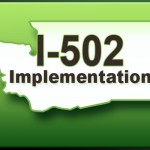On January 27, 2013, Gabe Galanda will warn about "The Perils of Indian Law 'Buy Back'" at the 2nd Annual Tribal Lands Conference at the University of Arizona College of Law in Tucson. Gabe has been a vocal critical of the program insofar as it might lead to individual Indian landowners' lands being taken forcibly or without just compensation.
Gabe's nationally published commentaries since 2012 are here, here, here, here, and here, and his comments to McLatchy DC's News Bureau are here.
Indian landowners with commercially or otherwise desirable trust land interests, beware. Indeed, as Gabe worried and warned in 2012:
Above all, how will the United States protect against any improper federal-tribal governmental allotted land consolidation – meaning one in which tribal members do not want to lose their family’s land forever? Or in which tribal members have their own plans to overcome fractionation challenges and utilize their family’s land for cultural or economic purposes? Or, on the flipside, one in which impoverished tribal members will sell their land interests for less than fair market value merely in order to survive? What about the situation where the tribe with “a controlling level of interest” seeks 100% ownership of the land for some unjust reason? Indeed, as noted by the Village Earth blog, Interior’s proposal “does not address the concerns of many individual land owners who feel that programs like this take advantage of people’s desperation, forever divesting them of their lands for a small one-time payment, and transferring them to the control of Tribal Governments who may not use them for the benefit of their people as a whole.”
Gabriel “Gabe” Galanda is a partner at Galanda Broadman PLLC, of Seattle, an American Indian owned law firm. He is an enrolled member of the Round Valley Indian Tribes of Covelo, California. Gabe can be reached at 206.300.7801 or gabe@galandabroadman.com.



 This year’s lineup of speakers include:
This year’s lineup of speakers include:
 Gabe, an enrolled member of the Round Valley Indian Tribes, owns Galanda Broadman, PLLC, a boutique Seattle law firm that he co-founded in 2010. He has now been selected to The Best Lawyers in America® from 2007 to 2014.
Gabe, an enrolled member of the Round Valley Indian Tribes, owns Galanda Broadman, PLLC, a boutique Seattle law firm that he co-founded in 2010. He has now been selected to The Best Lawyers in America® from 2007 to 2014.



